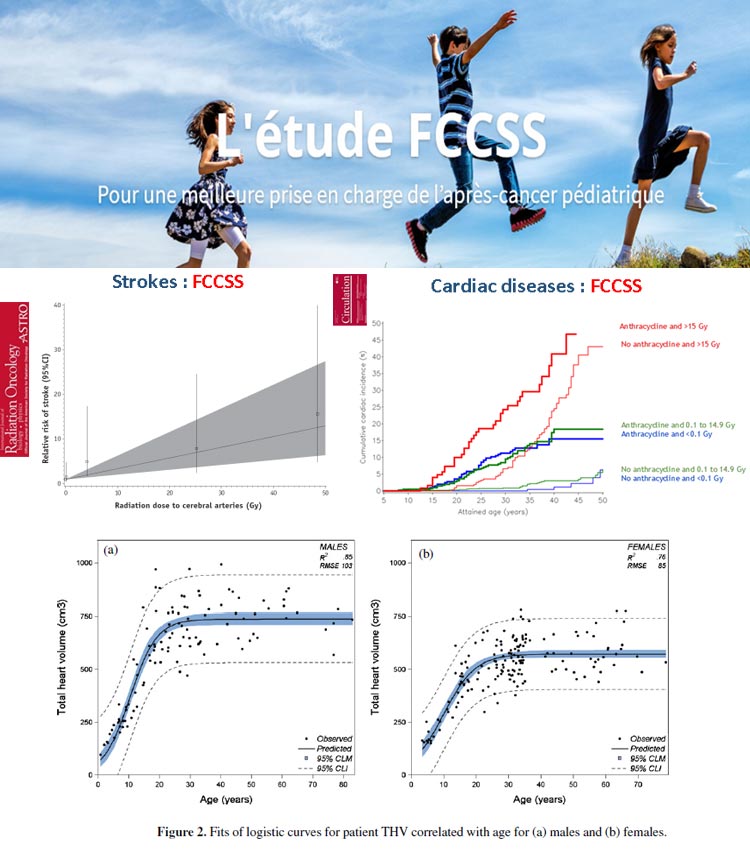Epidemiology of radiation
This team is part of UMR 1018/CESP - Centre for research in epidemiology and population health
The team focuses its work on the epidemiology of the effects of ionizing radiation on health, as well as all aspects of quality of life of long term survivors from childhood cancers
For several years, the team has been building and monitoring cohorts of subjects exposed to widely varying levels of ionizing radiation doses: FCCSS cohort (cohort of children treated for cancer before the year 2000), ANGIO cohort (cohort of children treated by radiotherapy for cutaneous hemangioma), VENUS (cohort of patients treated for thyroid cancer) and TRAVNUCL (cohort of workers from contracting companies in the French nuclear industry).
The team is also studying the genetic and environmental risk factors for differentiated thyroid cancer, and has conducted case-control studies in French Polynesia, Cuba and Eastern France. Moreover, our team is the only research team studying the health consequences of atmospheric nuclear tests carried out by France between 1966 and 1974 in French Polynesia.
The main cohort managed by the team is the French Childhood Cancer Survivors Study (FCCSS), which to date includes 7670 subjects treated before the year 2000 for solid childhood cancer in 5 French Cancer Centers, and who have survived at least 5 years. Very detailed clinical and therapeutic information was collected for all children, and the doses of ionizing radiation received by all healthy organs of the body during their radiotherapy were estimated using specific software developed by the team. The follow-up of the cohort is carried out through access to medical records, the sending of self-questionnaires, the setting up of long-term follow-up consultations, and access to data from the National Health Data System (SNDS). A biological bank, BIOF, is being established and currently includes more than 3,000 subjects, for whom saliva and/or blood samples have been taken. The objective of the FCCSS and BIOF is to study the risk factors of iatrogenic pathologies, cancerous or not, developed by survivors of childhood cancer, which are very numerous and serious. We are working in particular on the interaction between genetic factors and treatments, and seek to identify subjects at very high risk of iatrogenic pathologies due to a specific genetic susceptibility. We are beginning to address the global study of the quality of life of these former patients, in particular the psychological, sociological and economic consequences of the iatrogenic pathologies they develop.
The team is also involved in several European research programs also addressing risk factors for secondary cancers, and cardiac and cerebrovascular pathologies after childhood cancer.
Perspectives
Our main goal is to develop risk models of iatrogenic pathologies taking into account behavioral risk factors, treatments received, genetic factors and the interaction between these factors. We are thus participating in the development of precision cancer medicine that takes better account of the quality of life of cancer survivors.

